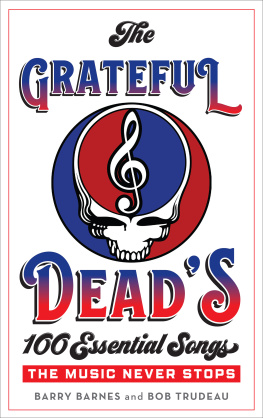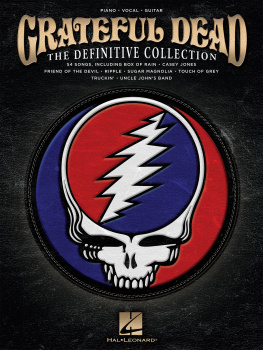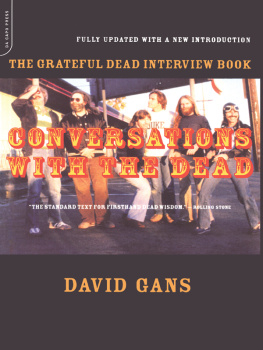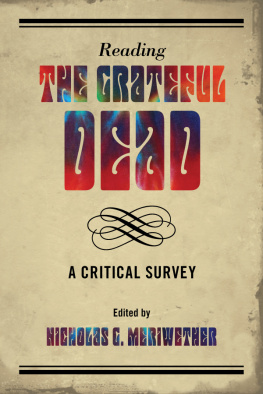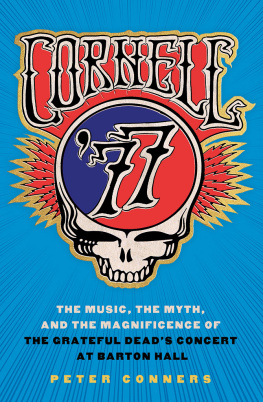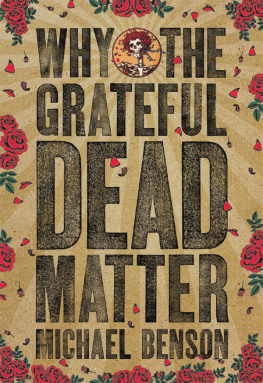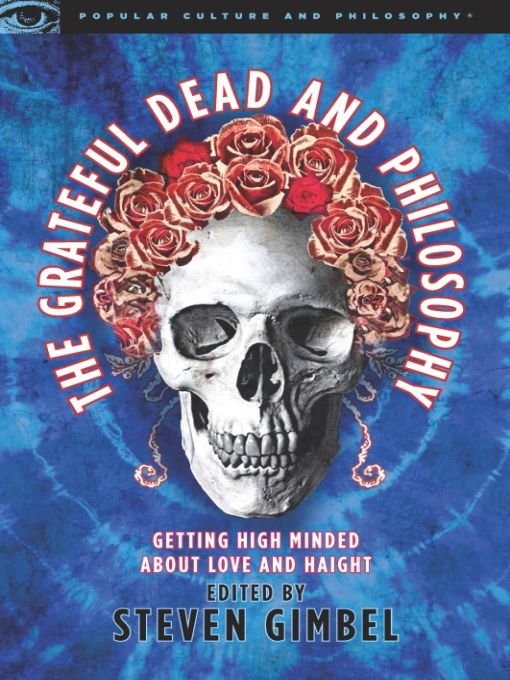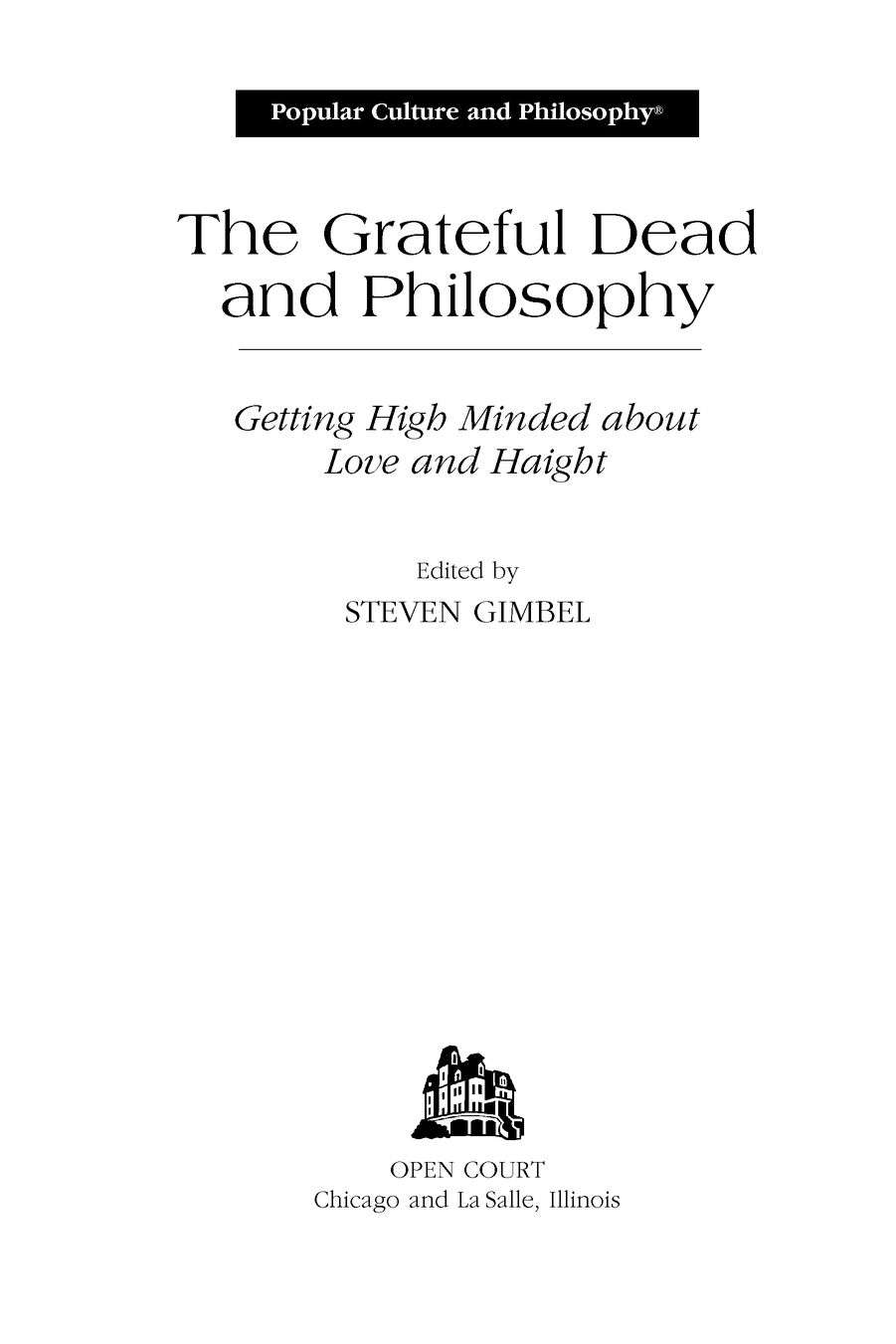Table of Contents
Popular Culture and Philosophy Series Editor: George A. Reisch
VOLUME 1
Seinfeld and Philosophy: A Book about Everything and Nothing (2000)
Edited by William Irwin
VOLUME 2
The Simpsons and Philosophy: The Doh! of Homer (2001) Edited by William Irwin, Mark T. Conard, and Aeon J. Skoble
VOLUME 3
The Matrix and Philosophy: Welcome to the Desert of the Real (2002) Edited by William Irwin
VOLUME 4
Buffy the Vampire Slayer and Philosophy: Fear and Trembling in Sunnydale (2003) Edited by James B. South
VOLUME 5
The Lord of the Rings and Philosophy: One Book to Rule Them All (2003) Edited by Gregory Bassham and Eric Bronson
VOLUME 6
Baseball and Philosophy: Thinking Outside the Batters Box (2004) Edited by Eric Bronson
VOLUME 7
The Sopranos and Philosophy: I Kill Therefore I Am (2004) Edited by Richard Greene and Peter Vernezze
VOLUME 8
Woody Allen and Philosophy: You Mean My Whole Fallacy Is Wrong? (2004) Edited by Mark T. Conard and Aeon J. Skoble
VOLUME 9
Harry Potter and Philosophy: If Aristotle Ran Hogwarts (2004) Edited by David Baggett and Shawn E. Klein
VOLUME 10
Mel Gibsons Passion and Philosophy: The Cross, the Questions, the Controversy (2004) Edited by Jorge J.E. Gracia
VOLUME 11
More Matrix and Philosophy: Revolutions and Reloaded Decoded (2005) Edited by William Irwin
VOLUME 12
Star Wars and Philosophy: More Powerful than You Can Possibly Imagine (2005) Edited by Jason T. Eberl and Kevin S. Decker
VOLUME 13
Superheroes and Philosophy: Truth, Justice, and the Socratic Way (2005) Edited by Tom Morris and Matt Morris
VOLUME 14
The Atkins Diet and Philosophy: Chewing the Fat with Kant and Nietzsche (2005) Edited by Lisa Heldke, Kerri Mommer, and Cynthia Pineo
VOLUME 15
The Chronicles of Narnia and Philosophy: The Lion, the Witch, and the Worldview (2005) Edited by Gregory Bassham and Jerry L. Walls
VOLUME 16
Hip Hop and Philosophy: Rhyme 2 Reason (2005) Edited by Derrick Darby and Tommie Shelby
VOLUME 17
Bob Dylan and Philosophy: Its Alright Ma (Im Only Thinking) (2006) Edited by Peter Vernezze and Carl J. Porter
VOLUME 18
Harley-Davidson and Philosophy:
Full-Throttle Aristotle (2006) Edited by Bernard E. Rollin, Carolyn M. Gray, Kerri Mommer, and Cynthia Pineo
VOLUME 19
Monty Python and Philosophy: Nudge Nudge, Think Think! (2006) Edited by Gary L. Hardcastle and George A Reisch
VOLUME 20
Poker and Philosophy: Pocket Rockets and Philosopher Kings (2006) Edited by Eric Bronson
VOLUME 21
U2 and Philosophy: How to Decipher an Atomic Band (2006) Edited by Mark A. Wrathall
VOLUME 22
The Undead and Philosophy: Chicken Soup for the Soulless (2006) Edited by Richard Greene and K. Silem Mohammad
VOLUME 23
James Bond and Philosophy: Questions Are Forever (2006) Edited by Jacob M. Held and James B. South
VOLUME 24
Bullshit and Philosophy: Guaranteed to Get Perfect Results Every Time (2006) Edited by Gary L. Hardcastle and George A. Reisch
VOLUME 25
The Beatles and Philosophy: Nothing You Can Think that Cant Be Thunk (2006) Edited by Michael Baur and Steven Baur
VOLUME 26
South Park and Philosophy: Bigger, Longer, and More Penetrating (2007) Edited by Richard Hanley
VOLUME 27
Hitchcock and Philosophy: Dial M for Metaphysics (2007) Edited by David Baggett and William A. Drumin
VOLUME 28
The Grateful Dead and Philosophy: Getting High Minded about Love and Haight (2007) Edited by Steven Gimbel
IN PREPARATION:
Quentin Tarantino and Philosophy (2007) Edited by Richard Greene and K. Silem Mohammad
Pink Floyd and Philosophy (2007) Edited by George A. Reisch
Bruce Springsteen and Philosophy (2008) Edited by Randall E. Auxier and Doug Anderson
FOREWORD
Half Baseball Game, Half Church
One of the standard jokes about Deadheads is that theyre determined to find cosmic significance in every aspect of the band they love so much. Every lyric, song choice, onstage utterance, and even random glanceJerry looked right at me!was mined for arcane meanings by scruffy fans determined to believe that the universe is a conspiracy working in their favor.
Its not hard to imagine why several generations of kids raised in American suburbia would be eager to join a subculture that held out the promise of Eternal Secrets Revealed during a night of serious partying and adventurous rock n roll. Whats harder to understand for non-Deadheads is how often these secrets actually were revealed in the course of a show. Im not talking about the stoned flights of fancy that evaporate in the harsh light of morning. Im talking about the kinds of durable insights that are the foundation of any meaningful, creative, and responsible human life. For decades, Dead shows provided me and thousands of others with an opportunity to check in, take stock, set aside the distractions of daily life, and tune up the internal navigation system for the long and unpredictable journey ahead.
These insights were not given by the band to its audience, as esoteric teachings might be passed on by a guru to an earnest student. The band members had no special claim on enlightenment, and were put off by the notion that they were anything other than reasonably capable and occasionally hardworking musicians who had lucked into a good gig. But somehow, the totality of the experiencethe music, the people, and, on those special nights, the psychedelicsprovided a setting where it became easier to sift the wheat from the chaff and remember whats truly important.
Thats not to say that the band didnt make an effort to provide guideposts for its audience along the road. The Deads primary lyricist, Robert Hunter, is a wily craftsman of phrases that yield a salty brand of wisdom while eluding facile exegesis. (It didnt hurt that he came to his role in the band after immersing himself in the writings of James Joyce and T.S. Eliot.) Of all the musical gifts of the late Jerry Garcia, perhaps the most remarkable was his knack for spinning out improvised melody lines that conveyed a sense of narrative development, as if each song, each jam, each set, and each show was itself a storystories folded within stories.
And its not as if the band didnt enjoy simply fucking with notions of transcendence, particularly if those notions got too staid, systematized, or pious. To uncover profound philosophical import in the Grateful Dead, you dont have to dig any deeper than the name of the band. Dead... and grateful? And there you are, standing in the middle of what Zen teachers call the Great Matter, life and death, with a grinning skeleton as your guide. (The fact that the bands name was the product of a chance operationone day in 1965, the band smoked DMT while thumbing through a Funk and Wagnalls dictionary, and the pages fell open to the fateful phrase, which none of them liked at firstonly makes it more Grateful Dead-ish. Garcia once said that the moniker turned out to be tremendously lucky. Its just repellent enough to filter curious onlookers and just quirky enough that parents dont like it.)


